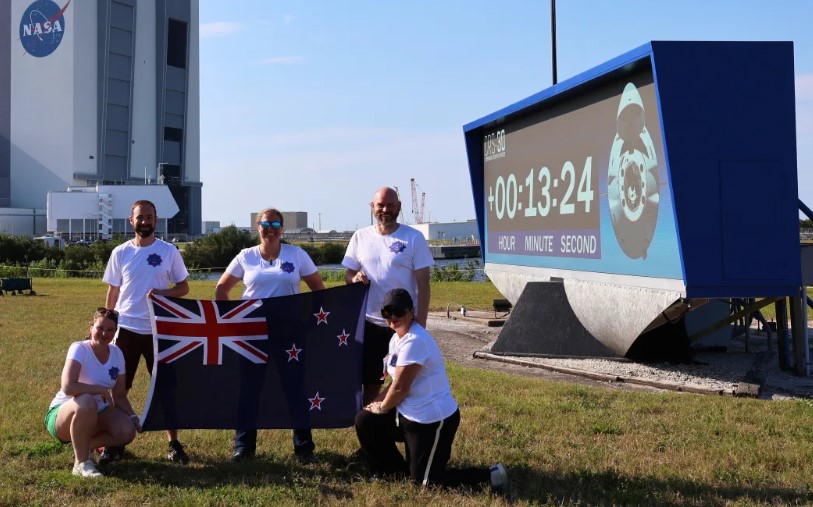About the Research
Led by Dr Sarah Kessans at the University of Canterbury, New Zealand has sent its first science payload to the International Space Station. The misson of the palm-sized, automated lab created by Sarah and her research team was to grow protein crystals in microgravity, where fluids behave differently and crystals can form more uniformly than on Earth. Microgravity-grown protein crystals can help scientists determine a protein’s structure, which is often the first step toward designing new medicines and advanced biotech tools. The experiment launched on SpaceX’s CRS-30 cargo mission in March 2024 with support from Axiom Space and partners, marking a national first for space-enabled biotechnology.
Donating to this fund helps Sarah and her team remain at the forefront of this amazing research and supports their efforts immensely.
Donations will help scale this now proven concept into a sustained programme that benefits Aotearoa. The team is developing a fully automated protein crystallisation platform, due to launch to the ISS in 2026 with another mission planned for 2028, paving the way for a commercial crystallisation service as the low Earth orbit economy grows. Donations will fund flight hardware development, faster analysis on returned samples, and student opportunities that build New Zealand’s homegrown capability in health and primary sector innovation while keeping UC at the forefront of space research.


